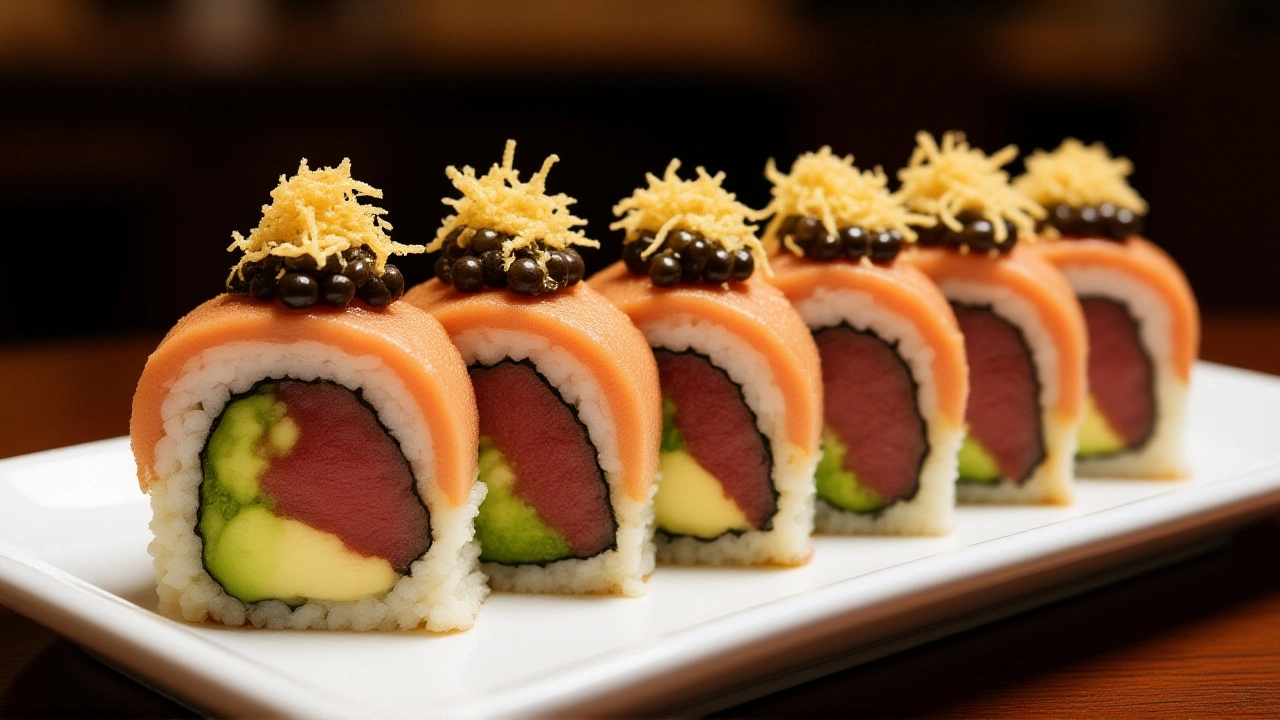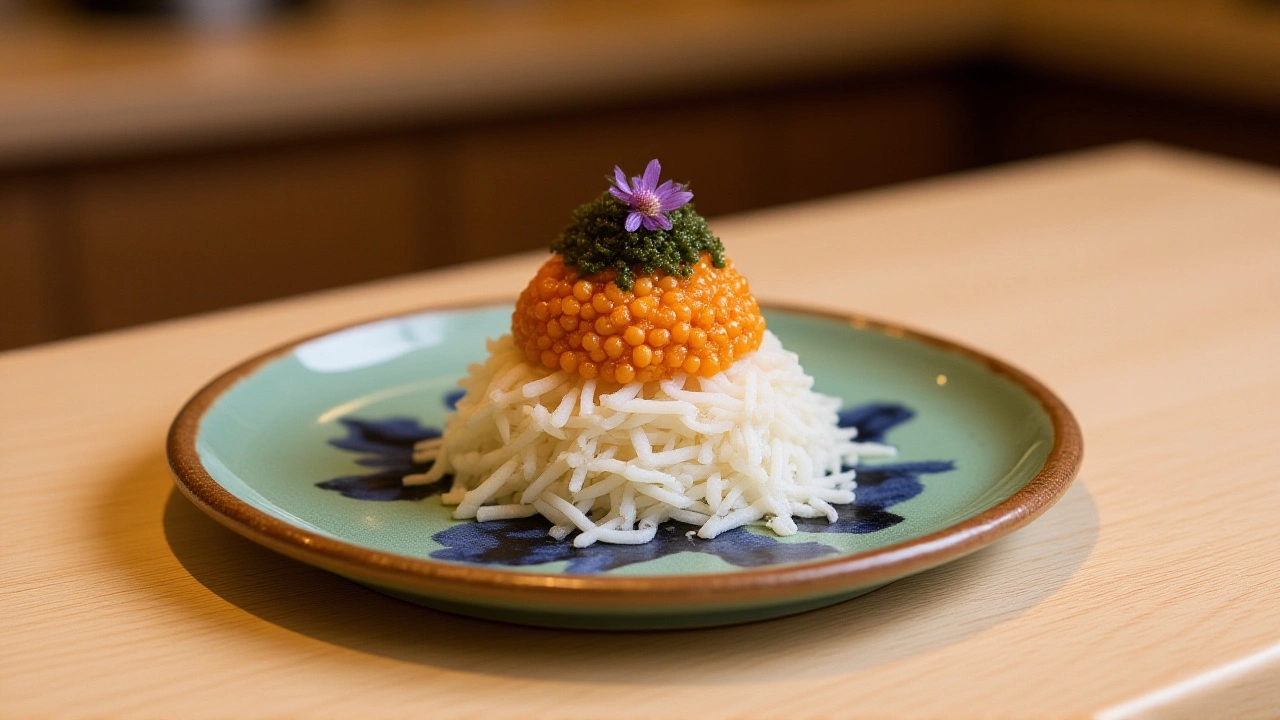Behind the neon-lit bar of Shore Leave, a tropical-themed cocktail den in Boston’s South End, lies one of the city’s most exclusive dining experiences: No Relation, a nine-seat omakase counter run by chef Colin Lynch. Opened in early 2025, the restaurant doesn’t have a separate entrance — you walk through Shore Leave’s bustling crowd, check in at its host stand, and suddenly, you’re in a quiet, dimly lit room where 17 courses of Japanese precision unfold over two hours. It’s not just a meal. It’s a performance. And it’s already the best-rated Japanese restaurant in New England.
How a Hidden Sushi Counter Became #1 Overnight
No Relation doesn’t advertise. No billboards. No Instagram ads. Just a website, OpenTable, and word-of-mouth from people who’ve been lucky enough to snag a seat. As of early 2025, it holds a 4.9 out of 5 rating from 198 reviews — the same score as Umami Omakase and Akame Nigiri, but with fewer reviews and higher demand. On the day OpenTable updated its listings, every single reservation slot was booked — six times over. That’s not a typo. Six people tried to book the same night, and all six succeeded. That’s how scarce it is. The menu changes nightly, but the framework is fixed: Japanese technique meets Lynch’s global curiosity. You’ll find bluefin tuna from Hokkaido, uni from Maine, and a black truffle shavings that arrive with a whisper of earthiness. Ossetra caviar isn’t an add-on — it’s an expectation. The table’s centerpiece? A magnetized world map showing where each fish was caught, traced back to the boat, the fisherman, the ocean. It’s not gimmick. It’s accountability.The Team Behind the Curtain
Shore Leave isn’t just a front door — it’s the brainchild of the same team behind Bar Mezzana and Black Lamb, two of Boston’s most respected dining destinations. Their playbook? Create something so intimate, so meticulously crafted, that it feels like you’ve been let into a secret society. That’s exactly what No Relation does. You’re not dining. You’re being hosted. Lynch, a Boston native who trained under masters in Tokyo and Kyoto, doesn’t just serve sushi. He tells stories. One course might be a delicate tamagoyaki brushed with yuzu kosho, another a chilled squid salad with fermented plum. There’s no menu card. No prices listed. You trust. You lean in. And when the last bite — a warm, buttery piece of fatty tuna over hand-pressed rice — lands in front of you, the chef quietly asks, “Would you like to try the extra bite?” That’s not a question. It’s a gift.
Boston’s Omakase Arms Race
No Relation didn’t appear in a vacuum. Boston’s high-end sushi scene has been quietly boiling for years. Wa Shin in Bay Village, with its 18-course seasonal degustation and seven-seat counter, opened in 2020 and became an instant cult favorite. Uni Boston, helmed by chef Ken Oringer, blends izakaya energy with sushi artistry. And then there’s Douzo Modern Japanese Restaurant, which draws crowds with its sleek design and 1,797 reviews — yet still can’t top No Relation’s perfect score. What’s different here? Size. Intimacy. Control. At Wa Shin, you’re one of seven. At No Relation, you’re one of nine — but you’re sharing the space with only five other strangers. That’s not a restaurant. That’s a living room with Michelin-level talent.Why This Matters Beyond the Plate
Boston’s South End has transformed since Fuji at Ink Block opened in 2016, turning a once-industrial stretch into a dining corridor. But No Relation isn’t just another addition. It’s a statement: luxury isn’t about square footage anymore. It’s about exclusivity, intention, and emotional resonance. The restaurant’s success also reflects a national shift. In New York, L’Artisan and Sushi Aoyama sell out months in advance. In Los Angeles, Sushi Ginza Onodera requires a personal referral. Boston’s version? You show up at Shore Leave, ask for No Relation, and hope they have room. The fact that it’s already ranked #1 in a market of 101 Japanese restaurants — according to TripAdvisor’s 2025 data — says everything.
What’s Next for No Relation?
Lynch hasn’t hinted at expansion. He doesn’t need to. With a waitlist that grows daily and a 4.9 rating that feels almost sacred, the restaurant’s future is already written: more demand, more pressure, more perfection. Will they add a third seating? Probably not. Will they open a second location? Unlikely. This isn’t a business. It’s a pilgrimage. And for those who’ve been lucky enough to sit at that counter? They won’t forget it. Not the smell of fresh wasabi. Not the quiet nod from the chef after the last bite. Not the way the lights dimmed just enough to make the caviar glisten like stars.Frequently Asked Questions
How do I get a reservation at No Relation?
Reservations are only available through OpenTable, and slots open 30 days in advance. Seatings are at 6:00 PM and 8:30 PM daily. Due to the nine-seat limit, availability vanishes within minutes — often within seconds of opening. There’s no phone number, no email waitlist, and no walk-in option. You must book online and check in at Shore Leave’s host stand.
Why is No Relation so expensive?
The $285-per-person price reflects premium sourcing: bluefin tuna from Japan’s Toyosu Market, wild-caught uni from Maine, and imported Ossetra caviar. Each course is hand-prepared by Lynch and two assistants, with no line cooks or pre-portioned ingredients. The experience lasts 90–120 minutes, and every ingredient is traceable to its source — a rarity even among top omakase spots.
Is No Relation really better than Wa Shin or Uni Boston?
It’s not about being ‘better’ — it’s about different experiences. Wa Shin focuses on seasonal, hyper-local ingredients with a Zen-like calm. Uni Boston blends izakaya energy with refined sushi. No Relation leans into theatrical storytelling, global sourcing, and chef-driven surprises. Its 4.9 rating and #1 ranking reflect how diners value its emotional intensity and precision — not just the food.
What’s the atmosphere like inside No Relation?
It’s quiet, intimate, and almost reverent. Soft lighting, minimal decor, and a single Japanese calligraphy scroll on the wall. The chefs serve each course silently, then step back. Conversations are hushed. You hear the scrape of a knife, the clink of ceramic, the soft exhale of someone savoring a bite. It’s not a date night spot — it’s a memory-making ritual.
Can I bring a group or celebrate a special occasion?
No Relation doesn’t accommodate private events or large groups. With only nine seats total, it’s designed for strangers to share an experience — not for birthdays or corporate dinners. If you’re celebrating, you’ll need to book one of the two nightly seatings and hope your tablemates are as respectful as you are. That’s part of the magic — and the challenge.
How does No Relation compare to other hidden restaurants in Boston?
Unlike speakeasies or basement bars, No Relation doesn’t rely on secrecy for novelty — it relies on excellence. Other hidden spots, like the former Bar Tartine pop-ups or the now-closed Koji’s Kitchen, faded after hype. No Relation’s staying power comes from consistency: 198 perfect reviews, zero complaints about service or quality, and a chef who’s still cooking every night. That’s rare.
